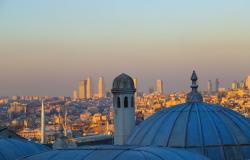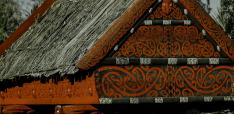3 Winners and 2 Losers from Turkey's Elections: Democracy, D’Hondt, and Kingmakers

Kubilay Ogutcu explores what the recent elections may mean for the country and those looking for lessons for elsewhere.
On May 14, Turkey went to polls to vote in presidential and parliamentary elections. Neither Recep Tayyip Erdogan nor his biggest challenger, Kemal Kilicdaroglu, passed the 50% threshold needed to win the election. Whereas Erdogan’s alliance won a slight majority over the parliament that now hosts over 10 parties.
Turkey will go to polls again on May 28th for a second round of presidential elections.
Even though neither of the candidates won the presidency, there were some winners and losers last night.
Winner: Turkish Democracy
Turkish democracy has been crippled in recent years by a coup attempt, jailed journalists, and politicians. Nevertheless, Turkish democracy is still very much alive, and the strongest pillar of Turkey’s democracy is its electoral process. Last Sunday was no different. The voter turnout was higher than 85%, illustrating that Turkish people believe in this crippled system. Both opposition and Erdogan supporters showed to volunteer at voting stations and ballot boxes. They observed the voting process and counted the votes while safeguarding the ballots till the early hours of the day. Turkish people know how fragile their democracy is and are willing to protect this privilege.
Loser: Recep Tayyip Erdogan
Erdogan failed to pass the 50% threshold to be elected, even though he has the state resources on his side for the past 20 years, making him one of the losers of yesterday. The campaign process was not equal between the two candidates, as Erdogan's alliance has a grasp on mainstream media and the state apparatus. He still couldn’t win in the first round under this so-called ‘Turkish’ presidential system, which he created to favor him. In addition, his party AKP got the least votes in parliamentary elections since 2002, getting 35%. Although Erdogan was the front-runner yesterday, it’s definitely not a celebratory day for his campaign.
Winner: Sinan Ogan
Sinan Ogan was the third candidate in the presidential race last Sunday. He is a far-right nationalist who doesn’t have a big alliance supporting him. Nevertheless, he got over 5% of the votes. Inevitably, his voters are going to decide who will be the next president, making him the kingmaker of the next elections. Both candidates will try to get his backing for the second round, possibly offering him concessions and ministerial seats. He emphasizes that he would not support a candidate who gets endorsement from “terrorists”, winking at Kilicdaroglu, supported by YSP, a pro-Kurdish party. It would be ironic if he decides to back Erdogan who helped elect HUDAPAR, a pro-Hezbollah party, through his party list.
Loser: Worker’s Party of Turkey
The Worker’s Party of Turkey had a big momentum in the past couple of years leading to the elections. Their parliamentarians are young and dynamic, appealing to younger voters with their flashy social media campaigns. They were also active post-earthquakes with a fast and efficient first response, winning hearts. However, they prioritized idealism over pragmatism in these elections, which resulted in them losing votes. They are in an alliance with YSP but didn’t join their party list, as they believed that their voters would only vote for them if they participated with their own logo on the ballot. Because of the D’Hont electoral system, which favors bigger parties and joint party lists, their votes did not “count” in many electoral regions.
Winner: Small parties: DEVA, DP, Gelecek, Saadet, HUDAPAR…
These small parties which are polling around 1% got to elect parliamentarians thanks to their alliances. Bigger parties like CHP and AKP put the small party candidates on their lists. D’Hondt system favors smaller parties that make alliances with bigger parties in order to get elected in the parliament. In this election, this ultimately worked in favor of the smaller parties. For instance, DEVA polls around 1%. But with its candidates under CHP’s party list, it got to elect 14 candidates. HUDAPAR which received 0.3% in the 2018 elections got to elect 3 parliamentarians thanks to AKP.
Two things to keep in mind before May 28:
- Erdogan’s alliance won the majority in the parliament. He will emphasize this while asking for the presidency and will surely use words like “stability” and “consistency”.
- The next two weeks will be very long for Turkey, where politics and news cycles move very fast. The candidate who can keep their cool and their alliance together will have the ultimate advantage in the second round.
All eyes were on Turkey last Sunday. Turkey’s allies in the West are eager to restore their relations which have been strained in the past decade, whereas Russia, one of Erdogan’s biggest supporters, is betting on Erdogan’s re-election. The world is still watching to see if an authoritarian democratic regime can revert back to democracy and if the opposition in Turkey can succeed in what others couldn’t, like the opposition in Hungary in 2022. No matter the result, the opposition in similar regimes can learn from the mistakes and successes of Kilicdaroglu’s campaign. Nevertheless, last Sunday showed the world that Turkish democracy is very much alive, and Erdogan’s brand of authoritarianism is not invincible.
Kubilay Ogutcu is a postgrad student at LSE studying International Development and Humanitarian Emergencies. After completing his undergraduate degree at McGill University and Sciences Po Paris, he worked at the UN and in philanthropy in Canada. He is interested in Turkish politics, humanitarianism, and social change.
Photo by Şinasi Müldür


